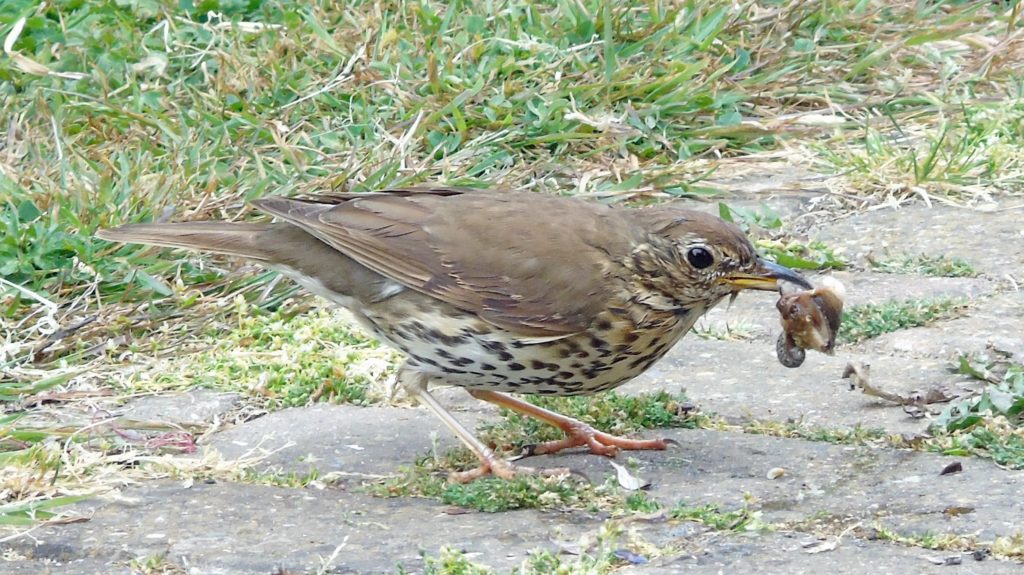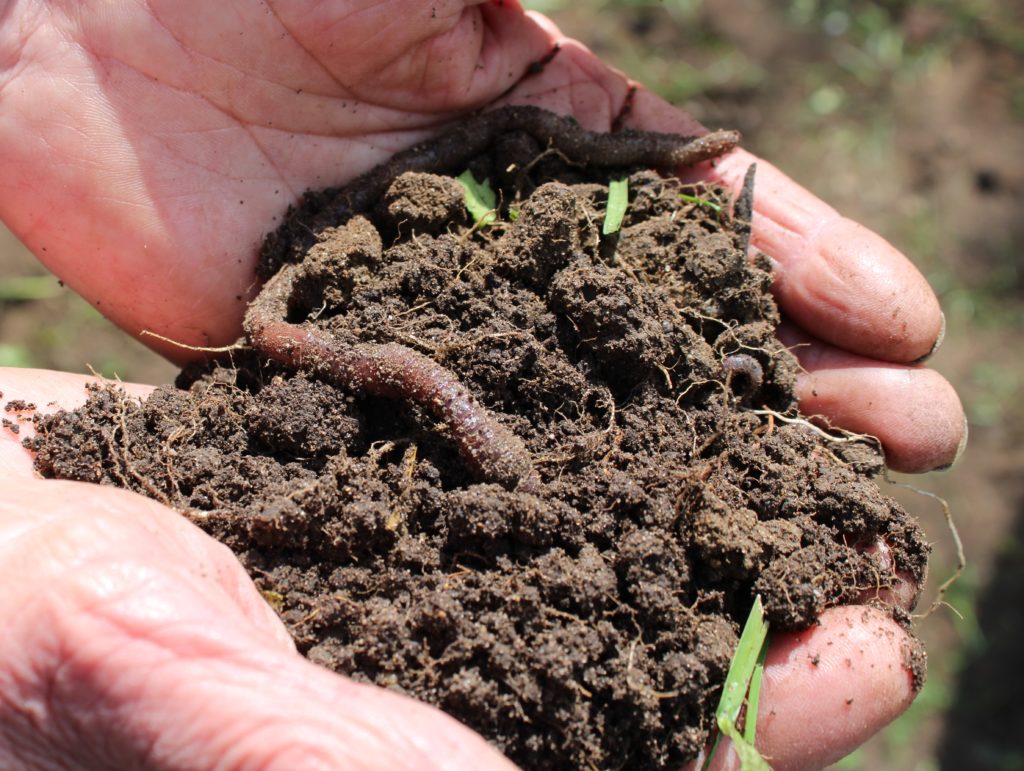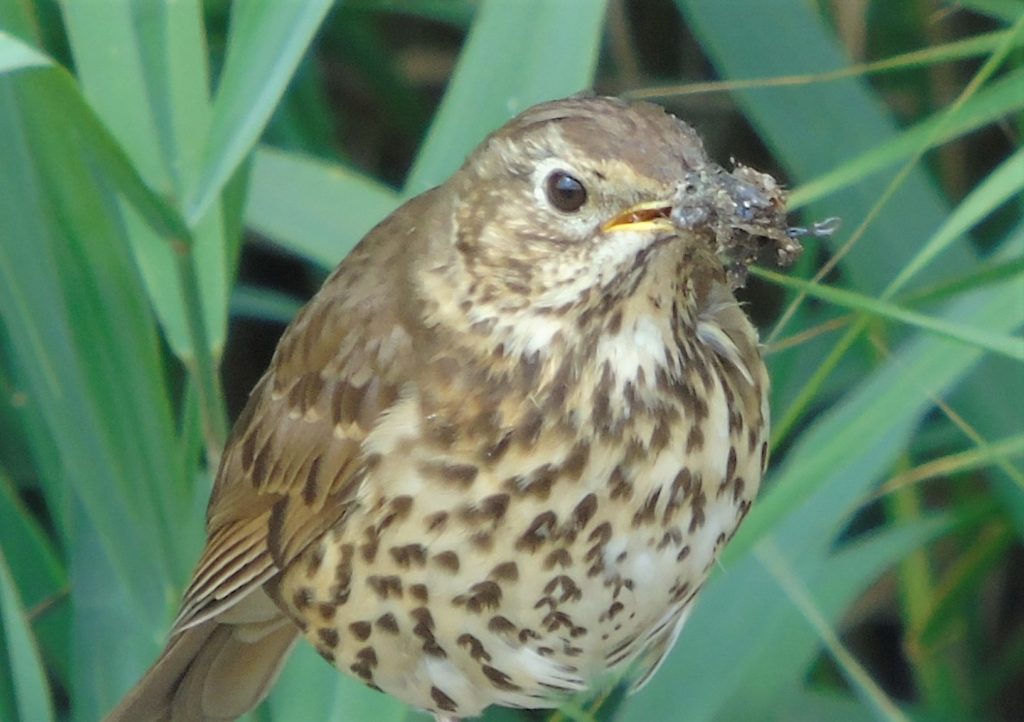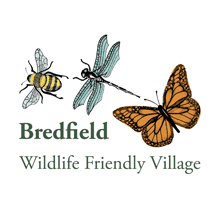Several Bredfield residents took part in this year’s RSPB Big Garden Watch. Watching and counting garden birds during this annual event is a delight but, in recent years, the edge has been taken off this delight when the results reveal a decline in some of our favourite garden birds. Perhaps the saddest news is that the once familiar Song Thrush has now sunk to 20th place in Big Garden Watch survey. Song Thrush was a regular in the top 10 in the early years of the Big Garden Watch. By 2009, its numbers were less than half those recorded in 1979. This year, its numbers are down 78% since the first count.

What has led to this? Like most changes in the natural world, there are several causal factors at work. The RSPB and the British Trust for Ornithology have commissioned scientific work to find the reason for the decline in the population of Song Thrushes. The results of this research point to two crucial factors, working together, to create an environment which hinders the life-cycle of the Song Thrush: a broad shift to arable land use rather than pasture; and a degradation of soil, which has led to a decrease in the density of worms in agricultural fields.
Song Thrushes are well-known for their use of any convenient hard surface – an ‘anvil’ – to bash the hell out of snails, which are then eaten. However, Song Thrushes tend to resort to this practice in late-summer and autumn, when the soil is too hard to extract worms. Earlier in the year, when they are nesting and rearing young, worms are the main diet. Anything that affects the number and availability of worms is going to have an impact on the breeding success of Song Thrushes.

A study of England’s farmland has found that key earthworm types are rare or absent in two out of five fields. According to Rothamsted Research, “the results indicate widespread, historical over-cultivation, and may explain observed declines in other wildlife, such as the Song Thrush, that feed on these worms.” The use of pesticides is likely to have a particularly adverse effect, especially ‘molluscicides’ which kill slugs and snails, but also take out worms.
RSPB research has compared a declining population of Song Thrush on intensive arable farmland with a stable population on mixed farmland. Two major differences were found: thrushes on intensive arable farmland made only 2-3 nesting attempts each year, compared to 4-5 attempts for birds in the stable population; and few fledglings on intensive farmland appear to survive their first few weeks after leaving the nest. In many areas of intensive farming, most Song Thrushes have moved to breed in, or close to, gardens. Song Thrushes in gardens fare better that those living on farmland.
There are claims that the fall in the numbers of Song Thrush and other song birds, is because of nest-raiding by Magpies. Of course, Magpies do raid nests, as they have always done for centuries past. But the evidence for Magpies being responsible for the recent fall in numbers of Song Thrush is not supported by the evidence. A survey conducted by the British Trust for Ornithology found songbird numbers were no different in places where there were lots of magpies and where there were few of them. The survey data suggested Song Thrushes were just as likely to have declined on farmland where the numbers of Magpies and Sparrowhawks had also decreased. Moreover, the proportion of Song Thrush nests which are predated has actually fallen during the last 30 years.

What is to be done to help save the Song Thrush and restore it to its previous top ten position in the Big Garden Watch? There are two answers to this: what happens on farms, and what happens in our adjacent gardens.
As village residents we are unlikely to have a significant influence on national farming practices. However, there are some reasons to be positive: other environmental agencies and lobbyists are at work; the lure of new Environmental Land Management payments will help; and there are indications that farmers are becoming aware of, and averse to, practices that harm the quality of soil. The earthworm research referred to earlier, found that 57% of farmers who took part in the survey said they would now change their soil management practices as a result.
The area where we can have some direct effect on the recovery of Song Thrushes is in our gardens. Many of the wildlife-friendly gardening suggestions given on this website should be helpful. Most especially, think about the soil in your garden. Pesticides may have an adverse impact on worms and this will, in turn, not be helpful to the Song Thrush. Rich bare earth left available before the planting of summer vegetables and plants will help early-breeding Song Thrushes in search of worms. Niches left for nesting, for shelter and for finding worms and snails will also lend a helping hand. Metaldehyde-based slug pellets pose a risk to Song Thrushes. A government ban on these pellets comes into force from 31st March 2022. If you have a stock of these pellets, please don’t use them in the 2021 growing season. Dispose of them appropriately.

